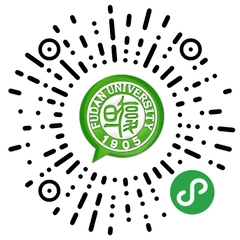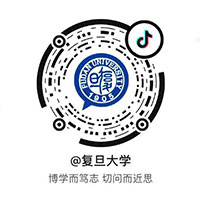假设你是一名医生,只有一台呼吸机可用,但却有两个需要它的病人,一个年纪更大,一个年纪更小。那么你应该把呼吸机给谁呢?你做出决定的道德原则是什么?
在中国日报社“21世纪杯”全国英语演讲比赛的即兴问答环节,来自万博体育客户端app下载大学上海医学院的杨康绮,面临着这样一个“价值与生命间的抉择”。站在一名医学生的角度,她给出了一段令人拍案称绝的回答。
在回答这个问题时,杨康绮引用了著名的电车难题,但她并没有选择采取更功利主义的方式。
在她看来,比起考虑病人未来的价值,她会优先考虑谁是真的更需要这台呼吸机。
I would not give up on any single patient because it is my obligation and my moral would call on me to do so.
我不会放弃任何一个病人,因为这是我的责任,我心中的道德准则也会号召我作出如此选择。
救病治人,医者仁心,这是杨康绮所信奉的准则。作为医学生,她又是如何看待理想的力量,以及“白衣天使”的责任与使命呢?
拥有希望 给予希望
在“21世纪杯”的总决赛上,杨康绮以“The Power of Ideals—Fighting for the Medical Mission”为题,发表了演讲。
杨康绮在在第26届中国日报社“21世纪杯”全国大学生英语演讲比赛总决赛上的已备演讲
演讲稿全文:
The Power of Ideals
—Fighting for the Medical Mission
In my first days as a medical student, I kept seeing this slogan: Connected with health, entrusted with life. It was on the door of my dormitory, in the orientation video, and in almost every program attributed to medical workers. It's a constant reminder of how sacred our duties are — doctors are expected to create miracles. After all, as the angels in white, we are supposed to cure everyone. However, I was uncertain if I could ever live up to that expectation. How can I make life and death decisions when I know I might fail?
I found my answer from the legendary surgeon Wu Mengchao. When he conducted surgeries that nobody else dared to perform, people asked him whether he was afraid of making mistakes and ruining his reputation. He replied, his patients are more important than his reputation. Instead of running from the fact that there could be accidents, he chose to stand by his patients.
To cure sometimes, to relieve often, to comfort always. This is the epitaph of the American doctor Trudeau, which later became an instruction to medical workers worldwide. Our job is to treat the patients with our best effort, but sometimes, we have to recognize our limitations — time, money, technology, or just sheer luck. So our ideal is never to cure every patient; it is to comfort every patient — not operating on them, but operating for them.
In medical school we were introduced to the concept of clinical reality, which is our interaction with the patients. It's about convincing the patients to trust us, knowing when to lie, and answering the question of why me. It's about having compassion, and giving the patients the hope to live longer and better.
During the coronavirus outbreak, the 27-year-old doctor Liu Kai took five minutes in the almost wartime routine to watch the sunset with a critically ill patient, and gave him the hope to struggle for survival. After a brutal attack from a patient, Tao Yong, the ophthalmology expert, chose to return to his job as soon as he recovered, because his patients were waiting for him to restore their sight, to share hope. My father, a surgeon in orthopaedics, once performed a surgery on femur intertrochanter, somewhere on the hip. He needed to put a nail inside to connect the fractured parts. It was supposed to be a common practice, but that day the situation became complicated. The nail couldn't be properly positioned, and the failed attempts partially shattered the bone. Though a little desperate, my father didn't lose hope, because intuitively he knew that he hadn’t tried everything yet. So he adopted an unusual alternative with a locking plate, and within ten minutes he wrapped up the surgery. Three months later, the patient could run and jump like nothing had ever happened.
At moments like those, hope defined the mission of doctors. Every day this same ideal gives us a clear vision, empowering us to work long hours in the wards, to practice handling the scalpel and tying the knots, and most importantly, to have hope, and to give hope.
In his TED talk, Paul Fedak, the expert cardiac surgeon, shared his journey to mastery. He said, mastery is about how we fight, compassion is about why we fight. And the heart of the patient is the reason for the fight.
医生总被赋予创造奇迹的期望,那么当医生知道自己可能会失败时,怎么能做出生与死的决定呢? 初进万博体育客户端app下载大学医学院临床医学专业的杨康绮,也曾感到十分迷茫。
后来,她从传奇外科医生吴孟超那里找到了答案。当他做别人不敢做的手术时,人们问他是否害怕犯错和毁掉自己的声誉。他回答说:“病人比名誉更重要。” 他没有逃避可能发生事故的事实,而是选择支持他的病人。
To cure sometimes, to relieve often, to comfort always.
有时去治愈;常常去帮助;总是在安慰。
杨康绮说,医生的工作是尽最大努力治疗病人,但有时,又必须认识到自己的局限性——时间、金钱、技术,或者仅仅是运气。
So our ideal is never to cure every patient; it is to comfort every patient—not operating on them, but operating for them.
所以我们的理想不是治愈每一个病人,而是为了安慰每一个病人;不是在他们身上动手术,而是为了他们而做手术。

在新冠肺炎疫情暴发期间,医生刘凯陪着一位危重病人,安静地看了一次久违的日落。因为他知道,这会给予他的病人为生存而奋斗的理由和希望。
眼科专家陶勇遭到了一名患者的暴力袭击,却选择在康复后立即返回工作岗位,因为他知道,他的患者都在等待着他,等他为自己带来恢复光明的希望。
Hope defined the mission of doctors. To have hope, and to give hope.
希望定义了医生的使命。拥有希望,并给予希望。
在演讲最后,杨康绮以保罗·费达克在TED的演讲作为结尾:
Mastery is about how we fight, compassion is about why we fight. And the heart of the patient is the reason for the fight.
医生永远是为了病人而战,虽然这些医生,也是一个个的普通人,但他们却永远在“拥有希望,并给予希望”。而这就是理想的力量(The Power of Ideals)。

初心医始 使命常伴
在拿到总决赛题目的时候,身为医学生的杨康绮同学马上就想到要分享医学生的“ideal”。新冠肺炎疫情以来,医护人员愈发受到社会的关注与尊敬,但作为医学生的她,更想让大家看到“白衣执甲”背后,医生作为会犯错的普通人,如何面对他们神圣的职责。
在演讲开篇,她分享了自己作为医学生曾经有过的真实的迷茫与恐惧:因为知道自己并非神明,所以有时会觉得“白衣天使”的称号过于沉重。准备演讲的过程中,她来回翻阅学校医学人文课程的材料,阅读不同科室的医生记录下的关于医患关系的探讨,也第一次以医学生的身份和同为医生的父亲进行关于“临床现实”的交流。
她会尝试从自身的视角代入,不断拷问自己:“我应该怎样处理这些问题?会选择成为什么样的医生?”她将思考的过程和得到的启发梳理了出来,最终呈现在了讲稿上。
定稿之前她曾有过犹豫,担心她探讨的内容很难打动听众。但和身边其他专业的同学交流之后她意识到:
生命的故事是最有感染力、最容易让人共情的。
医生的职责与困境或许难以被行业之外的人理解,但他们对生命的敬仰与执着,对人性的尊重与关怀,是可以与所有行业甚至所有人类共享的。

杨康绮(右)与她的指导老师时丽娜(中)和万博体育客户端app下载学长钟雨桐(左)的合影
“因为同台竞技的优秀选手太多,其实我没有为这段旅途预设过结果。” 在参加“21世纪杯”的总决赛之前,杨康绮并没有想过,自己会捧回全国冠军的奖杯。
她只是决定让一切顺其自然,尽力做好能做的事情,展示最真诚和真实的自己,然后享受舞台。这段参与公众演说的经历,也赋予了她一个独特的视角,洞悉世界、审视自己、观察身边的人。
接下来,她马上要进入学校的医学专业课学习阶段了,不久以后的某天,也终将从纸上谈兵的医学生成为真正面对疾病、面对痛苦、面对病人的医者。
杨康绮说,她会永远记得演讲台上讲出“To comfort always”时自己的初心,努力做一个让患者心安、得患者信任的好医生。





